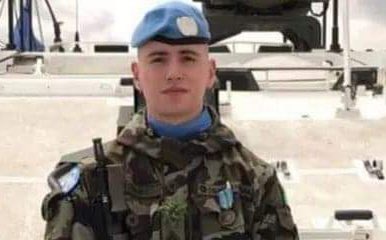Israel-Lebanon border: The Irish troops watching Israel’s hidden conflict
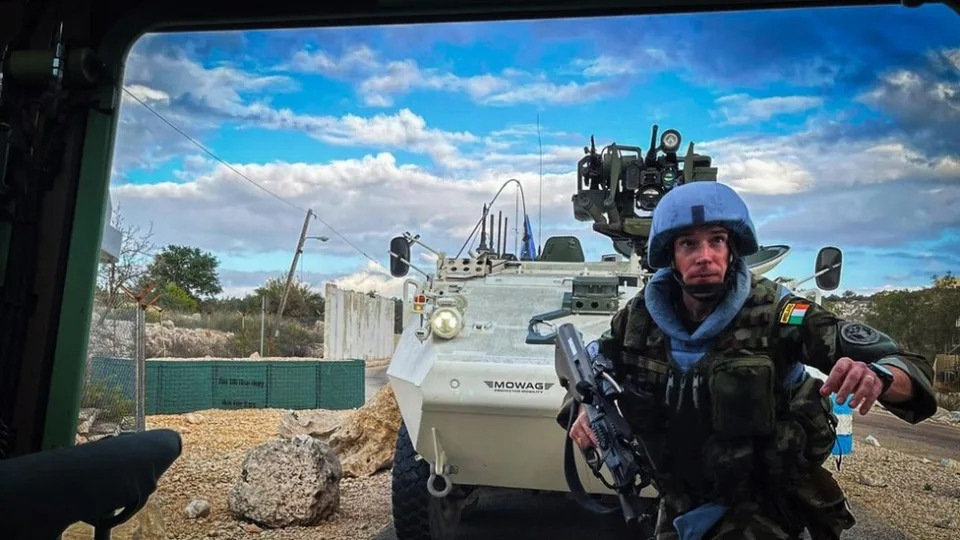
“If you hear an alarm sounding it means you need to run to the nearest bunker,” says Captain Aódhan McGuinness as we arrive at Camp Shamrock.
He is the tactical operations director for the Irish troops who run this UN peacekeeping base close to the Lebanon-Israel border.
We can hear the buzz of Israeli drones hovering overhead. They sound like hair dryers or electric razors, and are now a constant presence day and night above towns and villages in southern Lebanon.
A loud explosion nearby interrupts Captain McGuinness’ safety briefing.
“Ok, today’s round has started,” he says.
The blast is yet another sign of escalating tensions in the area since Hamas launched its unprecedented assault on Israel back in October.
The UN peacekeeping mission, known as Unifil, is responsible for monitoring the Blue Line, the unofficial frontier between Lebanon and Israel.
During the last four decades the area has witnessed on and off clashes between the Lebanese Shia Muslim militant group, Hezbollah, and the Israeli army.
While Hezbollah is labelled a terrorist organisation by the UK, US and others, it is a mainstream political party in Lebanon, leading an alliance which fell just short of a majority in the national parliament in elections last year.
Wearing body armour and helmets we join a group of heavily armed peacekeepers in a convoy of armoured vehicles for a 20-minute drive to another base that is just 500m (1,600ft) from the Blue Line.
With Israeli military installations visible across the frontier, the commander of the outpost, Lieutenant Dylan Cadogan, says they often have to take shelter in bunkers during strikes, sometimes for hours.
“We have seen houses destroyed and we have seen civilians caught in crossfire that needed our help.”
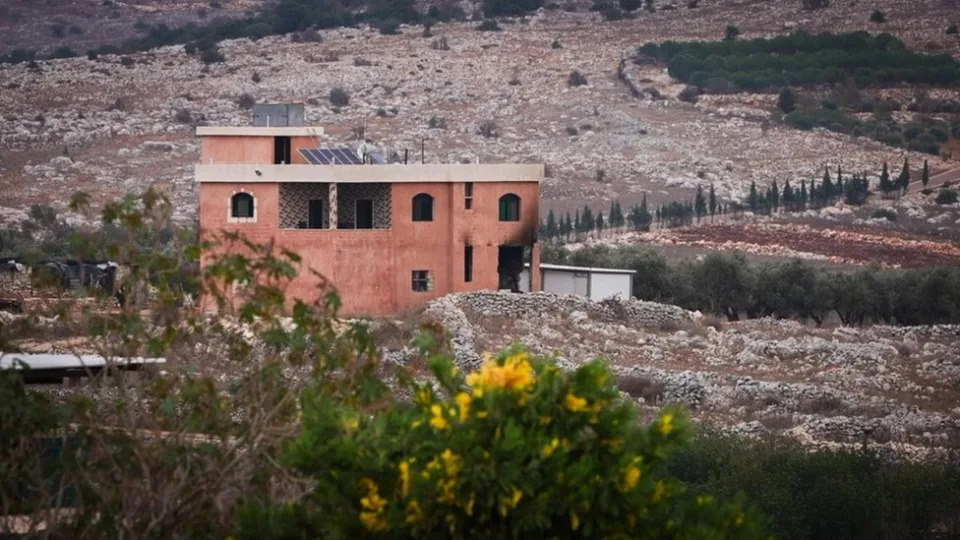
From the base’s watchtower he points at a pink house in the distance: “There was a mother and a child in that building only 400m (1,300ft) from us.
“Their house was shelled, and they had to run here to take refuge and we provided them with medical support and took them to safety.”
The Unifil troops have recovered the bodies of people killed in the fighting but cannot say how many were Hezbollah fighters due to the sensitivity of their mission and the need to remain neutral between the warring parties.
“It is not our job to comment on these, just observe, monitor and report what we see to our headquarters,” Lieutenant Cadogan says.
Since Israel launched its offensive on Gaza following Hamas’s attack on 7 October, Hezbollah has regularly carried out rocket and drone attacks from southern Lebanon, some aimed at military targets, others fired more indiscriminately into northern Israel.
Israeli forces have retaliated with heavy air strikes and artillery fire.
Due to the fighting 60,000 people have been displaced from the border area on the Lebanese side, while thousands of Israelis have been evacuated from northern Israel.
Monitoring groups say that in the first week following Hamas’s attack in October there were around 70 reported incidents near the Blue Line, and by mid-November it had risen to about 250 attacks a week.
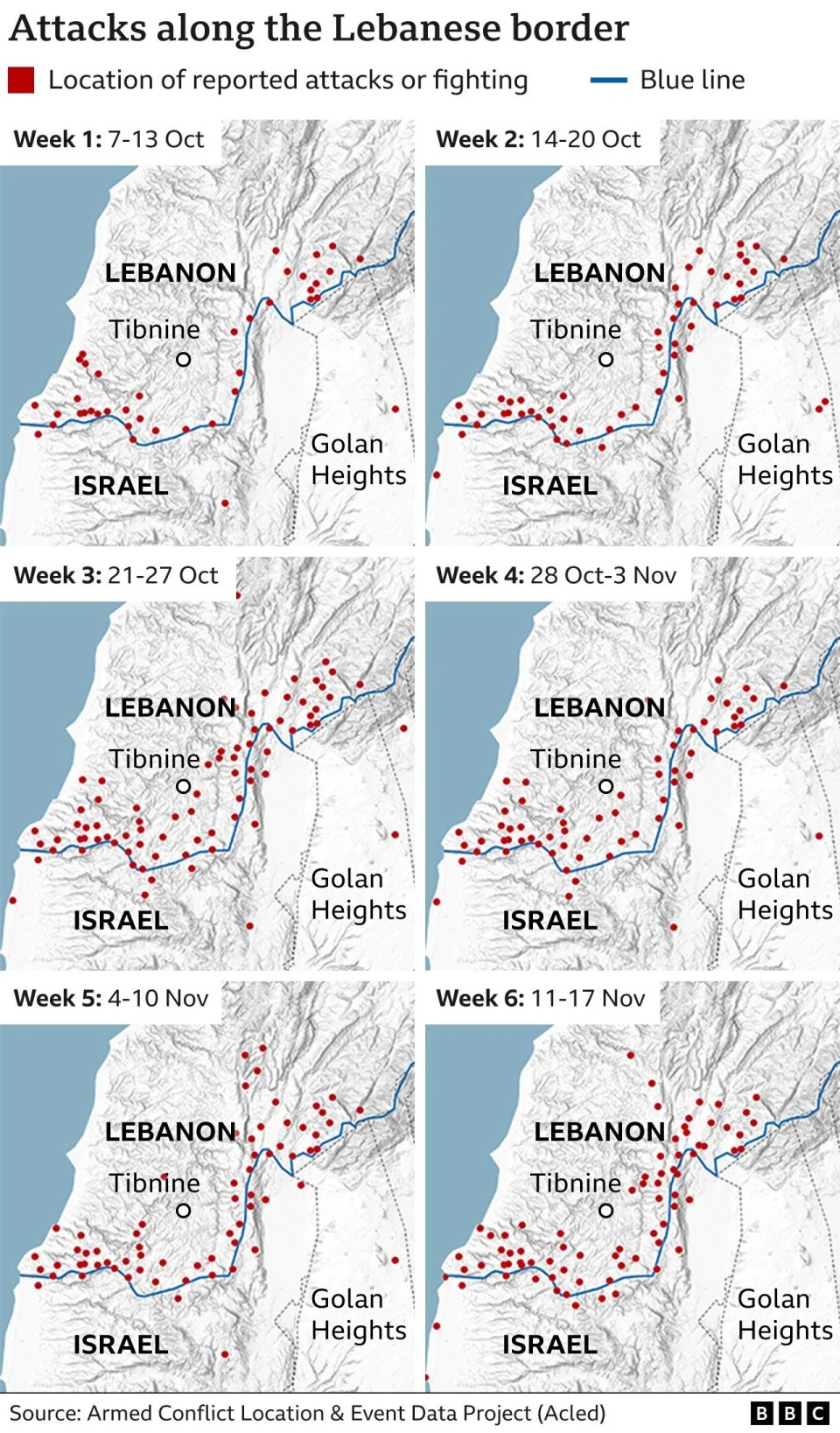
The peacekeeping force was first deployed in 1978 after Israel invaded southern Lebanon in response to cross border attacks by the Palestine Liberation Organisation.
Since then, more than 300 peacekeepers have been killed, 48 of them Irish, something which is on the minds of the troops’ families.
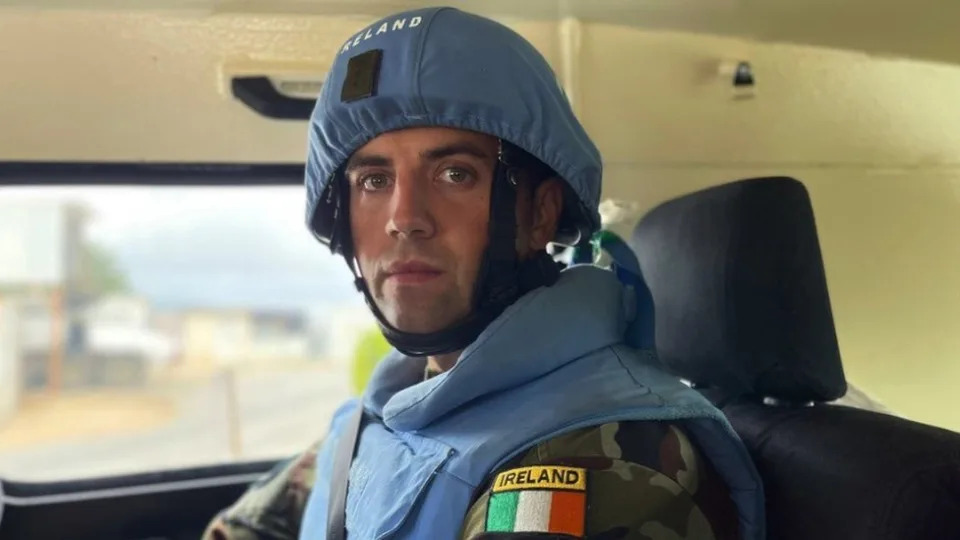
Captain Tony Smith, 27, on his second deployment, regularly reassures his relatives back home in Wexford, in south east Ireland.
“Of course my mother wants me to go home now, which eventually I will, but she knows why we are here and despite her concerns she supports that.”
Approaching the nearby town of Tebnine, posters of Hezbollah leader Sheikh Hassan Nasrallah and fallen Hezbollah fighters line the road.
It’s 10km (6.2 miles) from the Blue Line and has been heavily damaged in previous conflicts.
Like most of the towns and villages in southern Lebanon, Hezbollah is very influential here and controls security in the area.
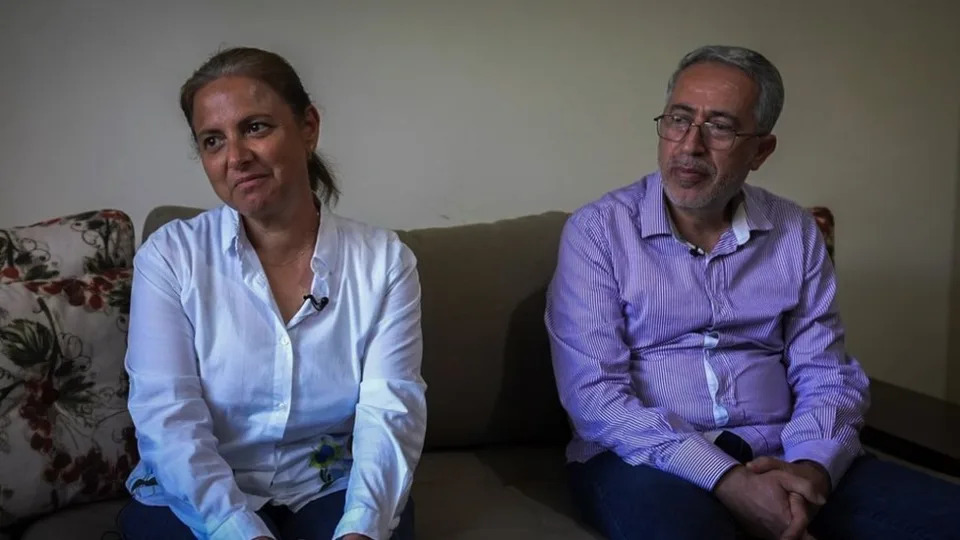
One of the local residents, 57-year-old Ali Saad, says he grew up with the Irish Unifil soldiers.
Speaking with a distinctive Irish accent, Ali says one peacekeeper helped teach him English when he was a young boy.
That soldier was one of three generations of the same Irish family to serve with Unifil. His father also served several decades ago, and his son is currently stationed in Lebanon.
Ali credits the Irish troops with helping to save his life when they picked him up from school and took him to one of their bunkers during an air strike.
In the years since, he has worked as a translator for Unifil and a group of Irish soldiers even attended his wedding to his wife, Bassima, who also helps the peacekeepers with language services.
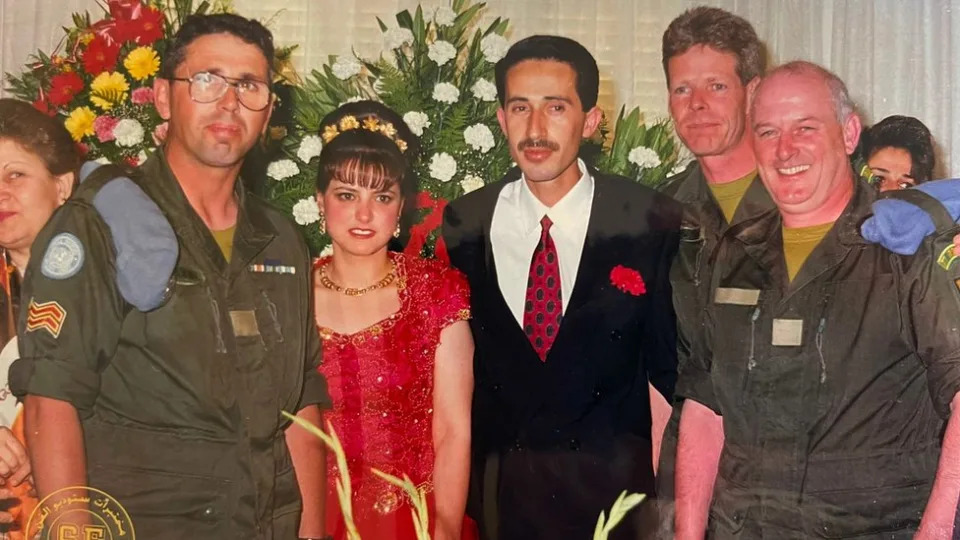
But while Ali values the troops’ presence, he is sad that the conflict they are there to monitor has dragged on so long.
“To be honest we never thought this mission would last for over 44 years,” he says.
For Bassima the current fighting has brought back painful memories of earlier conflicts, like the Israel-Hezbollah war in 2006.
“I was putting my younger son inside an empty washing machine because I was hoping that it could project him,” she says.
“Now, we keep hearing all these sounds of explosions and I just can’t take it.”
She believes that growing up surrounded by conflict has affected her son, who is now 23. He still gets nervous when Unifil helicopters fly overhead.
“We can’t go back to where we were,” she adds. “We are wasting our life from one conflict to another, I just cannot go through another war.”

Back at the base, Unifil commander Lieutenant Colonel Cathal Keohane is concerned that the level of violence in the area has been increasing.
“We have seen an expansion and more attacks deeper inside to Lebanon, we have seen a wider range of weapons being used,” he says, worrying that the situation could escalate.
“Whether it arises deliberately from one side, or some inadvertent circumstances precipitate the outbreak of all-out war, that is a serious concern for us.”
He hopes that the ceasefire in Gaza will lead to an easing of tensions around the Blue Line, but says it could take displaced people some time to return to their homes, even if the cross border fire ends.
https://ca.yahoo.com/news/israel-lebanon-border-irish-troops-103935560.html














